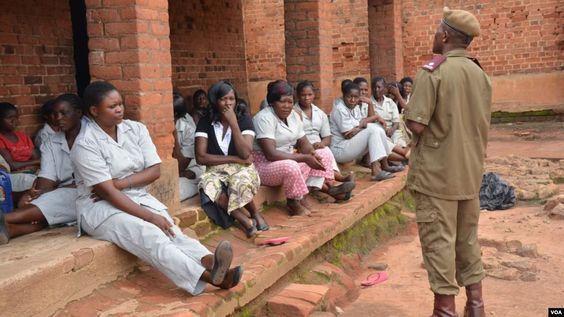Africa
Malawi transfers female prisoners to facilities for women alone

Malawi has started removing female detainees from prison buildings where they previously housed male offenders. According to the authorities, the move to jails for women only is meant to put the women in a setting that is better for their wellbeing.
The more than 20 prisons in Malawi are divided into highest security and medium security facilities, and they provide various inmate correctional programmes.
But according to authorities, women were not considered when these facilities were being developed.
According to Chimwemwe Shaba, a spokesman for the Malawi Prisons Service, gender-insensitive prison architecture has resulted un a bias against women in incarceration programmes including formal and informal education, vocational training, and others. And in order for both genders to equally benefit from their programmes, they made it difficult to mingle the male and female prisoners.
The workshops, according to Shaba, are quite close to the male cells, which the female inmates are afraid to enter for fear of being intimidated or verbally assaulted.
The spokeswoman added that women cannot pursue their studies in ordinary prisons because of the unfavourable environment. As a result, only male prisoners make academic progress in prison.
Malawi briefly segregated female inmates in jails in 2020 to reduce the COVID-19 outbreak and stop new inmates from infecting the women and their unborn children.
“Because of that, some of them expressed interest in pursuing formal education and one of them managed to do well,” added Shaba. “Now, you’d realise that it was really a coincidence, but the outcomes were extremely encouraging. So that’s why we’re saying, “No, they can succeed if we build programmes for them and provide a suitable environment.
READ ALSO: Refugees from Rwanda complain of being singled out and victimized in Malawi
According to Shaba, 59 of Malawi’s 412 female prisoners have already moved to Kachere, an all-female jail that was formerly a juvenile rehabilitation facility.
The spokesperson explained, “It means that all of the classroom blocks will be utilised by female prisoners and that we have already begun sending qualified teachers who are officers to ensure that they give quality education to this female jail.
visit complications
The relocation of the female prisoners was welcomed, but Victor Mhango, executive director of the nongovernmental Centre for Human Rights Education, Advice and Assistance, which promotes the wellbeing of prisoners, expressed concern that some family visits would terminate as a result of the relocation.
He stated that “many prisoners are taken to prisons near their area.” But in this instance, it would be similar to keeping a prisoner from Chitipa (district) in Mzuzu (city). It implies that visiting her will be challenging for their family members. Although I believe it will be difficult, I think the concept is sound.
Shaba, a spokesman for the national prison system, recognised the issue and stated that just three facilities have been chosen so far for the all-female jails.
In order to facilitate shorter travel times for family visits, he claimed that preparations are underway to build as many female jails as feasible across the nation.
VOA
